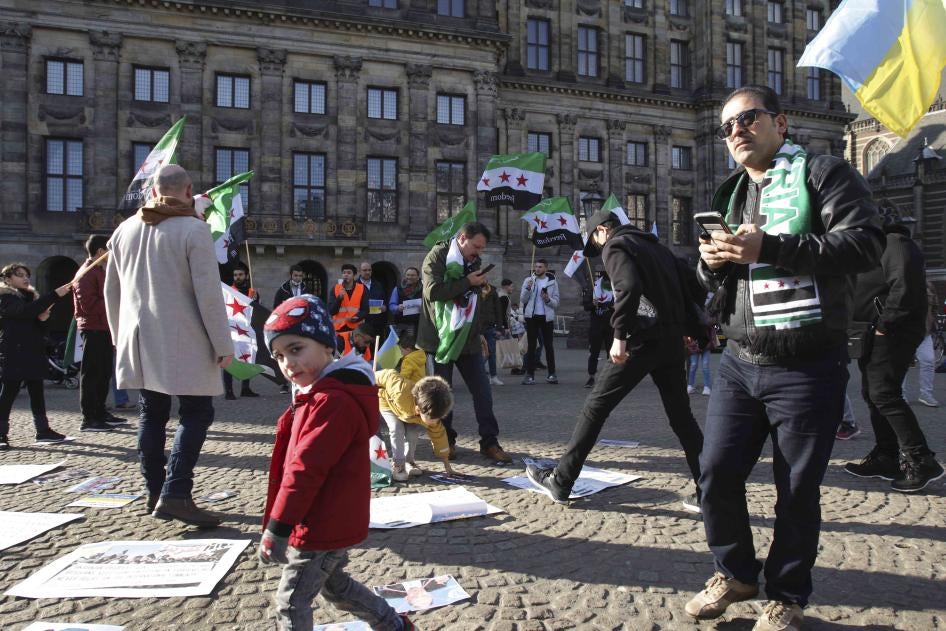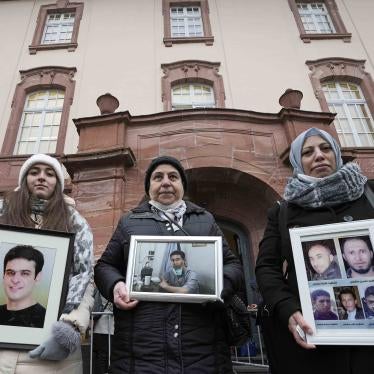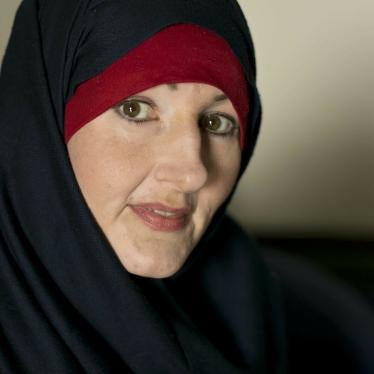Over the past couple of years Syria has settled into a grim status quo: a crumbling economy, a fragmented nation, and the continued peril refugees face from forced returns home.
Yet in the lead-up to the 11th anniversary of the Syrian revolution, there have been some isolated notes of optimism. The trials in Koblenz, Germany, for instance, brought a former Assad regime officer to justice earlier this year. And Syrians are observing the rapid and widespread international condemnation of the Russian invasion of Ukraine with a sense of vindication, as they witness countries coordinate to forcefully oppose Syrian President Assad’s ally, President Vladimir Putin, as Russian forces commit unlawful attacks, killing and maiming civilians.
“Ukraine is a Syrian cause,” prominent Syrian intellectual Yassin al-Haj Saleh wrote recently.
The latest images of destruction across Ukraine caused by Russian attacks have struck very close to home in places like Daraa and Homs. Videos uploaded onto social media of possibly unlawful attacks on hospitals and residential areas are a haunting reminder of the Russian-Syrian alliance’s brutal aerial offensive campaign in Aleppo and Idlib since 2015. As Saleh noted, “Syrians opposed to President Bashar al-Assad might come second only to Ukrainians themselves in following every horror of the war that Vladimir Putin’s regime is waging in Ukraine.”
Despite the double standards in media and the urgency with which countries responded to Ukraine compared to Syria, civil society groups and activists’ broad commitment to fundamental rights and solidarity with other people facing repression has not wavered. Syrian activists and refugees have often been among the first to demonstrate solidarity with other people facing crisis; the last three weeks has been no different. The Syrian humanitarian organization, the White Helmets, which has reportedly saved thousands of Syrians lives through their rescue efforts, have recently voiced their preparedness to volunteer in Ukraine.
Recent events have demonstrated that the world is capable of mobilizing to oppose brutal bullies, countries are able to waive their visas regulations for people in need fleeing conflict, and refugees can be welcomed with compassion. So, even though the world largely abandoned Syrians to face down attacks from multiple abusive armed actors, this moment should be a reminder that Syrians’ experience of violent rights violations is the same as Ukrainians’, and they deserve the same continued protections and support too.
Maya Ghazi is a pseudonym used to protect the identity of a Human Rights Watch staff member.









